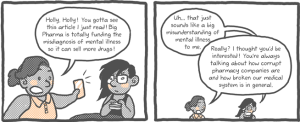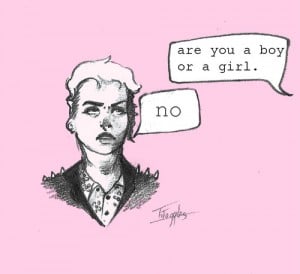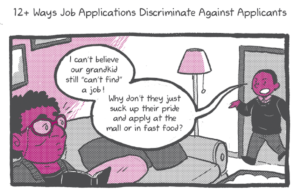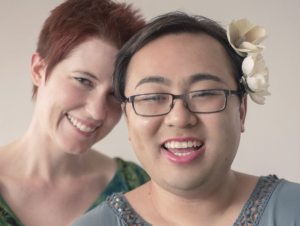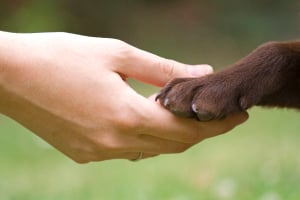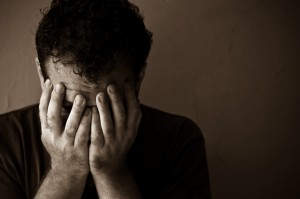
Source: Holmes And Hills
Let me tell you about a friend of mine. Let’s call him Eddie.
Eddie was a college-educated, relatively liberal, straight guy. He spent almost his entire life in a small, predominantly Christian and staunchly Republican town; he felt like he was surrounded by a lot of ignorance.
Considering that he and his male buddies loved to make rape jokes – especially rape jokes about gay men – I would have to agree with him.
Needless to say, it got old after a while, especially considering the fact that he was well aware that I am both gay and a feminist. Someone needed to let him know that enough was enough.
Spoiler alert: It was me.
I can’t recall exactly what I said, but I remember some sound bites, such as “You do know that you’re making fun of gay people directly to a gay person, right?”
I also included this classic: “When you say those things, you never know who in the room has been raped. You’re mocking real people’s traumatizing experiences. I wouldn’t think it was funny if you got raped.”
And, most importantly, “Those jokes make me feel uncomfortable. Please stop.”
And he did.
I don’t know if he felt enlightened after our chat or if he just saved the jokes for his bros. To be honest, I don’t really care to know.
All I can really say about the conversation is that it never occurred to Eddie that gay rape jokes are offensive, mainly because of three seemingly obvious principles:
1. Rape is real, and it isn’t funny.
2. Jokes at the expense of gay people are homophobic.
3. It is possible for a man to be raped, and, again, it isn’t funny.
Unfortunately, most people go through life without being taught these concepts. This ignorance leads them to believing gay jokes, rape jokes, and – therefore – gay rape jokes are acceptable.
Have you ever said that someone you dislike should “go suck a dick?” Ever jokingly called a man a “buttfucker” or a “cocksucker?”
I used to. That is, until a gay man pointed out the meaning of my crude remarks. I felt embarrassed by my own actions, but that confrontation made me think about the implications of seemingly harmless dirty jokes.
The vulgarity and percussive nature of gay rape jokes can certainly get a laugh, but they also speak to some of our societal attitudes regarding rape and queer sexuality.
If you have a friend like Eddie or if you’ve just realized your own mistakes like me, here are some answers to the question, “Why do people make homosexual rape jokes and think it’s okay?”
1. Rape Jokes Are ‘Edgy’
The entertainment industry has always been attracted to controversy in general, but lighthearted commentary about rape in particular has come to the forefront in the past twenty years or so.
Remember the song “Daterape” by Sublime? What about the Daniel Tosh controversy?
Sarah Silverman satirized this phenomenon in her recent HBO special, We Are Miracles. Her joke works because it highlights and criticizes the ways rape culture manifests itself in our society.
In my experience, I have found that men who joke about homosexual rape also tend to joke about heterosexual rape.
There are some cis men who joke about rape because they think it could never happen to them. Some men honestly do not know that it is possible for a woman to rape a man, let alone that a man can rape a straight man.
As a gay woman, I break stereotypes of heteronormativity in my daily life. Sometimes I forget that there are straight people who can conveniently forget about queer issues, namely that sexual violence does happen in the LGBTQ+ community.
Privilege manifests itself when cis-het men ignore the reality that some men are raped by other men outside of the context of a tasteless joke.
2. ‘No Homo!’
One of my favorite lines of Shakespeare’s work is the often-misquoted quip from Hamlet : “The lady doth protest too much, methinks.”
Basically, Queen Gertrude was saying that the lady in question was overcompensating to try and look innocent. Some straight guys employ similar methods to avoid looking gay.
The most common way this manifests is when a guy does something remotely loving or kind towards another man and follows up the action with a hasty “no homo!”
Making jokes about homosexuality or homosexual rape is a way some men try to make the point that the mere thought of coming across as gay is so far from the truth that it’s ridiculous. These jokes are a way to cover up the fear of being or appearing gay.
Let’s call a spade a spade here: It’s a defense mechanism, and it’s a problematic one at that.
There are plenty of campaigns detailing the problematic implications of the “no homo” phenomenon. Being gay isn’t reproachful. Men showing admiration or affection for other men does not make them less valuable or tough.
Trying so hard to appear straight is insulting to queer people and contributes to a rigid, harmful brand of masculinity in which stoicism is honored and emotions are repressed.
3. Prison Rape
Our society dehumanizes incarcerated people – especially in the United States.
The US incarcerates the highest percentage of its population on Earth. Uncle Sam sends children through school and straight into correctional facilities by way of the infamous school-to-prison pipeline.
There are colossal amounts of people in prison, and yet when these masses of people are no longer incarcerated, they are left with shamefully limited rights and resources to assimilate into life beyond bars.
The policies surrounding mass incarceration send a very clear message: If you have been convicted of a crime, your humanity does not matter to the guys in charge.
To say that is disgusting would be an understatement at best and blatant disregard for human rights at worst.
This frame of mind trickles down into society in employment discrimination, discriminatory laws , disproportionate incarceration of minorities, harmful stereotypes of criminals, and the perennial “don’t drop the soap!” joke.
Take the straight-up disrespectful way we as a society regard incarcerated people, and combine it with rape culture. This leads to a world where people think criminals are sub-human and therefore deserve heinous things to happen to them.
Nobody deserves to be raped. Period. This includes people whom our society has labeled as “Bad Guys.” Nobody. Deserves. To. Be Raped.
Sexual assault in prison is a real thing, and it isn’t funny.
Inmates are raped by fellow inmates as well as correctional staff members. Sexual assault happens among incarcerated people of all genders, but the stereotype used most often in jokes is that of a large, scary male inmate anally raping a weaker male inmate in the shower (hence, “Don’t drop the soap”).
Because our culture has deemed it okay to joke at the expense of rape victims, criminals, and LGBTQ+ people, this translates to a lot of poorly written, hurtful, and phallic prison-rape jokes and jokes about homosexual rape in general.
4. Taboo
Take a look at sex education and mainstream media, and it is clear that we need to have more productive conversations about rape culture and queer sexuality in general.
Why do people think rape is an abstract notion worthy of a cheap joke?
Because people usually don’t feel comfortable discussing the realities of rape. So much goes unsaid that people forget that rape is real and devastating..
Why do people giggle at the idea of homosexual anal sex?
Because our culture treats all anal sex (including heterosexual anal sex!) and anything remotely gay as “dirty,” “alternative,” or otherwise “abnormal.”
The average layperson obviously hasn’t gotten an adequate education on how the prostate gland works.
Any topic that seems forbidden in conversation will find its way into the mouths of provocative, often ignorant people.
You can stop this cycle by breaking the silence surrounding sexuality, LGBTQ+ communities, and rape.
More often than not, you will learn that your friends and loved ones haven’t given these ideas much thought, since they don’t usually come up in conversation.
***
If you witness gay rape jokes in your social life, please know that your emotions are valid.
Gay jokes are passé. Rape jokes made at the expense of victims are tactless and unfunny. Penis jokes are immature. Combine all three, and the results can be insufferable.
Thankfully, you have options.
If an insignificant acquaintance or someone you otherwise dislike makes homosexual rape jokes, you don’t need to interact with them. In fact, you didn’t need to hang around them in the first place, but their general tackiness just scored you an excuse to peace out!
On the other hand, if you really think the guy making gay/rape/obnoxious jokes truly knows not what he does, you absolutely can try to discuss his accidental ‘-ism.’
Even though harmless intentions can yield harmful results, you have the opportunity to open up someone’s mind and positively influence their behavior if you have the patience to start a dialogue.
However, confronting anyone’s less-than-stellar behavior runs the risk of damaging your relationship. Hopefully, your friend/coworker/family member/partner is open-minded and humble enough to listen and evaluate his actions.
Outside of the context of feminism, think like a comedy writer. If someone’s humor or sensibility offends you more than it makes you feel genuinely uplifted, don’t waste your time on them.
There are plenty of people who have both tact and true wit. Find those people, and spend your energy having fun with them instead.
[do_widget id=”text-101″]
Want to discuss this further? Visit our online forum and start a post!
Maddie McClouskey is a Contributing Writer for Everyday Feminism. She’s a twenty-something lesbian in New York City and currently writes weekly dating advice pieces for the LGBTQ event app and website SheSeekOnline and was a regular contributor to the sexuality and feminism site ToughxCookies. When she’s not writing articles about gayness, she’s performing stand-up comedy, singing show tunes to her girlfriend and dog against their will, or making up jokes for Twitter @SoundofMaddie. Read her articles here.
Search our 3000+ articles!
Read our articles about:
Our online racial justice training
Used by hundreds of universities, non-profits, and businesses.
Click to learn more





